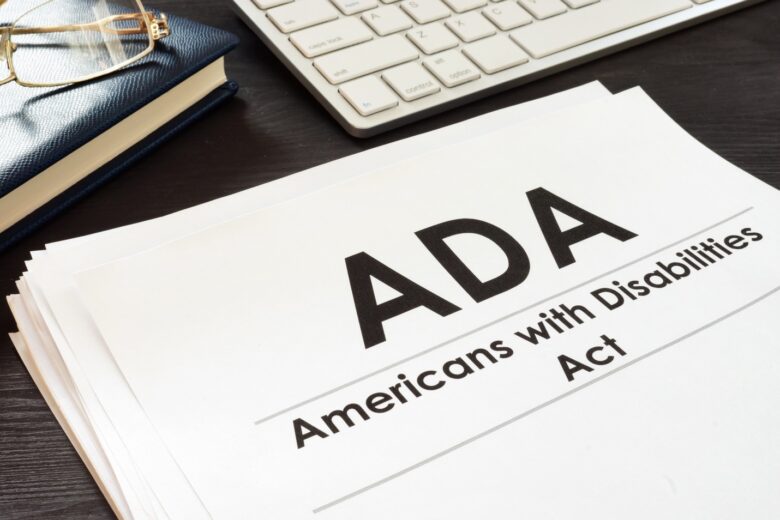Maximizing the utilization of your nonprofit’s facilities is a great way to boost revenue. Allowing or encouraging other NGOs to utilize temporarily or routinely available space is a practical strategy for many organizations to enhance their reputation in the community and promote the goals of similar groups. Despite the numerous potential benefits of sharing your space with others, the risk of loss or injury resulting from guest usage of your property requires careful assessment by risk leaders.
To Contract or Not?

Source: wikipedia.org
Although a written contract for the use of a conference room, foyer, or patio area for a few hours may seem unnecessary, failure to have one might result in painful and expensive repercussions, such as:
- Uncertainty as to who is accountable for property damage or other harm resulting from visitor usage of the location
- Unintentional breach of your nonprofit’s privacy policies or regulations involving sensitive information about your organization or clientele
- Lost chance to communicate vital principles on the safe and proper usage of your place
- Uncertainty or undue anxiety over the terms of usage, such as the number of days, the time of day, or the space’s limitations
10 Must-haves for Temporary Use Contracts

Source: homelet.co.uk
At a minimum, a written agreement necessitates consideration of the potential if-then scenarios linked with the use of your buildings, office space, outdoor space, and other resources. At its finest, a contract will guarantee that major concerns are resolved between the parties prior to occupancy or when problems arise. Among the most essential elements of a space usage agreement are:
- Schedule – specify when the area is available for usage.
- Description of space and authorized usage — Include the precise room, location, or space that your guest is permitted to use, as well as the general purpose (or restrictions) for the use (e.g., the main conference room may be used for your upcoming board meeting).
- Points of Contact — Include the name, phone number, and email address of the key point of contact at the visiting NGO, in addition to the same information for your organization.
- Insurance — Specify your insurance requirements, including whether you require proof of coverage and identification as an extra insured.
- Rules — Clearly define the rules governing the place that will be inhabited by the visiting group. Keep in mind that a lengthy, too inclusive list of relevant and nonapplicable regulations can be easily disregarded; a clear, concise list that fits the area is always preferred. For instance, you may ban guests from attaching items to the walls in a conference room with wallpaper, or request that they refrain from moving heavy furniture in a room with soft wood flooring.
- Maximum capacity – Inform your guests of the space’s maximum capacity, which may be at or below the maximum allowed by local construction and fire rules.
- Equipment – if appropriate, indicate if equipment in the room is available for use by the guest and, if so, whether there are restrictions governing its utilization.
- ADA applicability — Indicate if the usage is subject to the Americans with Disabilities Act’s public accommodations restrictions (learn more at access-board.gov, or Chapter 1: Using the ADA Standards).
- Use of Name and Marks – indicate whether you permit or prohibit the use of your nonprofit’s name on promotional materials related to the event or activity, or whether you require that the name be used (but not your logo) in a particular manner, such as “The location of the workshop is: ABC Nonprofit, 123 Main Street, First Floor, Anytown, USA.”
- Fees — Confirm, if appropriate, the use charge and when and how it must be paid, if there is a price.

Source: adatile.com
Once your contract specifics are in place, be sure to establish a plan and structure for making and keeping your space available. Consider a marketing program that includes formal and/or word of mouth advertising, partnerships with the local Chamber of Commerce, networking with other nonprofits, and well-produced information sheets about your facilities to share with businesses and community leaders.
Decide who on your work team will oversee the rental and facility management process and consider the tools available to make the tasks and associated details easier to maintain. Visit https://www.facilitron.com/facility-owners/facility-management-software/ for information on technology solutions to support the effort.
Other Risks and Tips

Source: weforum.org
Preparing and executing a contract can help clarify conditions between your organizations and those that use your space, but there are other risks to consider.
Is it UBIT? If your nonprofit lends space to other organizations, the cash you receive may constitute unrelated commercial income (UBI). Whether rental income is UBI subject to unrelated business income tax (UBIT) depends on whether the rental is substantially relevant to promoting the exempt purpose of the organization. For instance, a nonprofit that rents space to other tax-exempt charities certainly furthers its exempt mission by fostering collaboration and reducing inefficiencies among nonprofits.
Schedule a Safety Briefing — Prior to handing over any space in your facilities to a visiting group, it is advisable to perform a quick safety briefing with the organization’s point of contact. To prepare for this briefing, compile a list of the information the user may want in an emergency, such as first responders, your organizational contacts, points of egress, outside convening points, and other essentials.
Equipment and Internet Access — Similar to the pre-visit safety briefing, inform your guests about the available equipment, supplies, and Wi-Fi networks. Many firms provide a guest Wi-Fi network to protect the security of the primary Wi-Fi network. Consider providing guidelines for guest Wi-Fi access in the guest rooms. Notify guests if any networks, equipment, or supplies are restricted.
Additional Considerations
In certain instances, the permissible usage of your facilities or grounds may exceed the temporary and casual categories. In such cases, enlist professional services for help in preparing additional contracts and agreements that include a formal lease and certificate of insurance.
There’s no question that making underutilized space available as a source for additional revenue and public awareness, but advance measures to do so are vital to your organization’s overall safety, reputation, and success.

